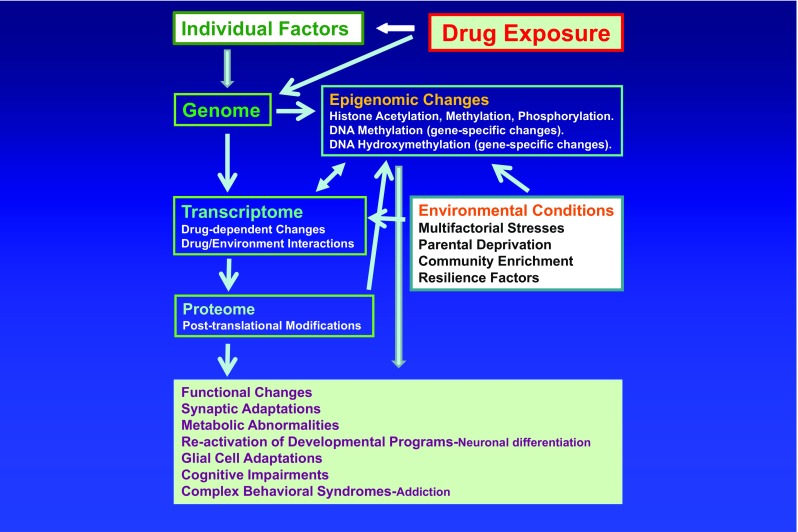Fig. 1.

Schema showing the potential interactions of drugs of abuse with an individual’s genome and the impact of environmental vicissitudes on the individual’s responses to these agents. The epigenetic responses to the drug will probably be dependent on the genetic background, family resilient factors, and environmental stressors that individuals face during their lifetimes. Substance use disorders (addiction) are thus viewed not as reductionist constructs but as multifactorial complex neuropsychiatric disorders, with only a few individuals actually developing those syndromes after trying various rewarding substances. This statement suggests the need to develop more animal models that take these issues into consideration. By extension, our pharmacological treatments may thus be bound to fail because present approaches of developing therapeutic agents employ all animals that self-administer a drug in question whereas only a few percentages of humans become addicted to a licit or illicit substance. The schema also suggests the need to identify resilient factors within individuals and families that treatment personnel can shore up within addicted individuals and teach to those who are living in high-risk situations
